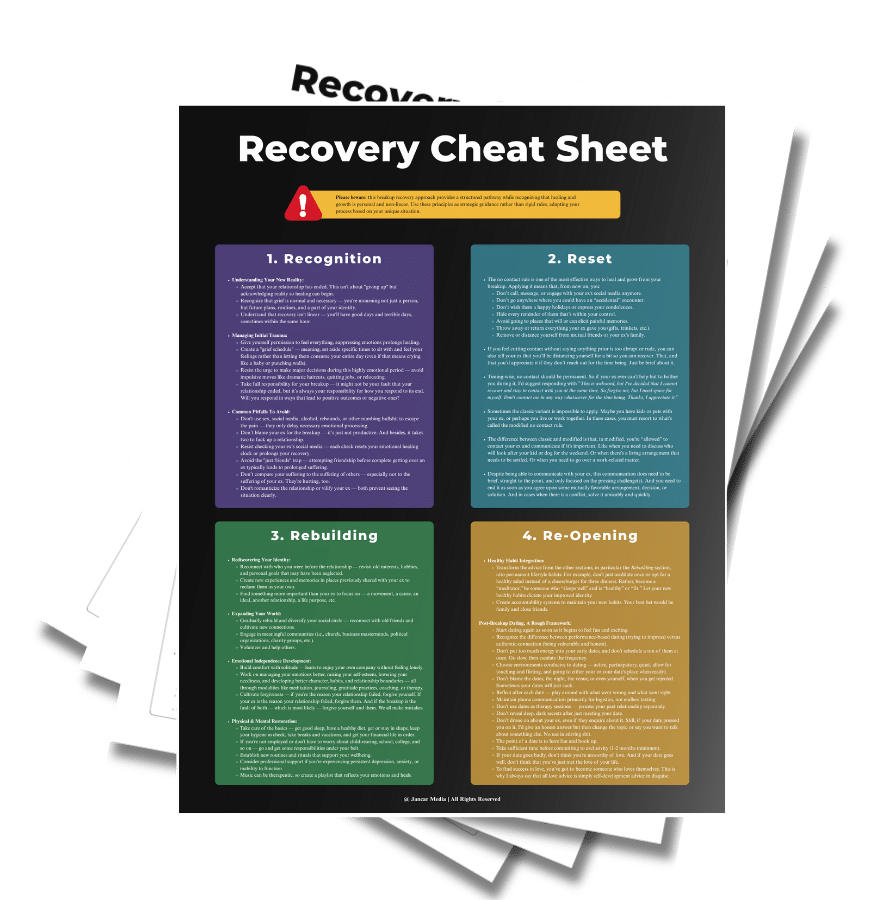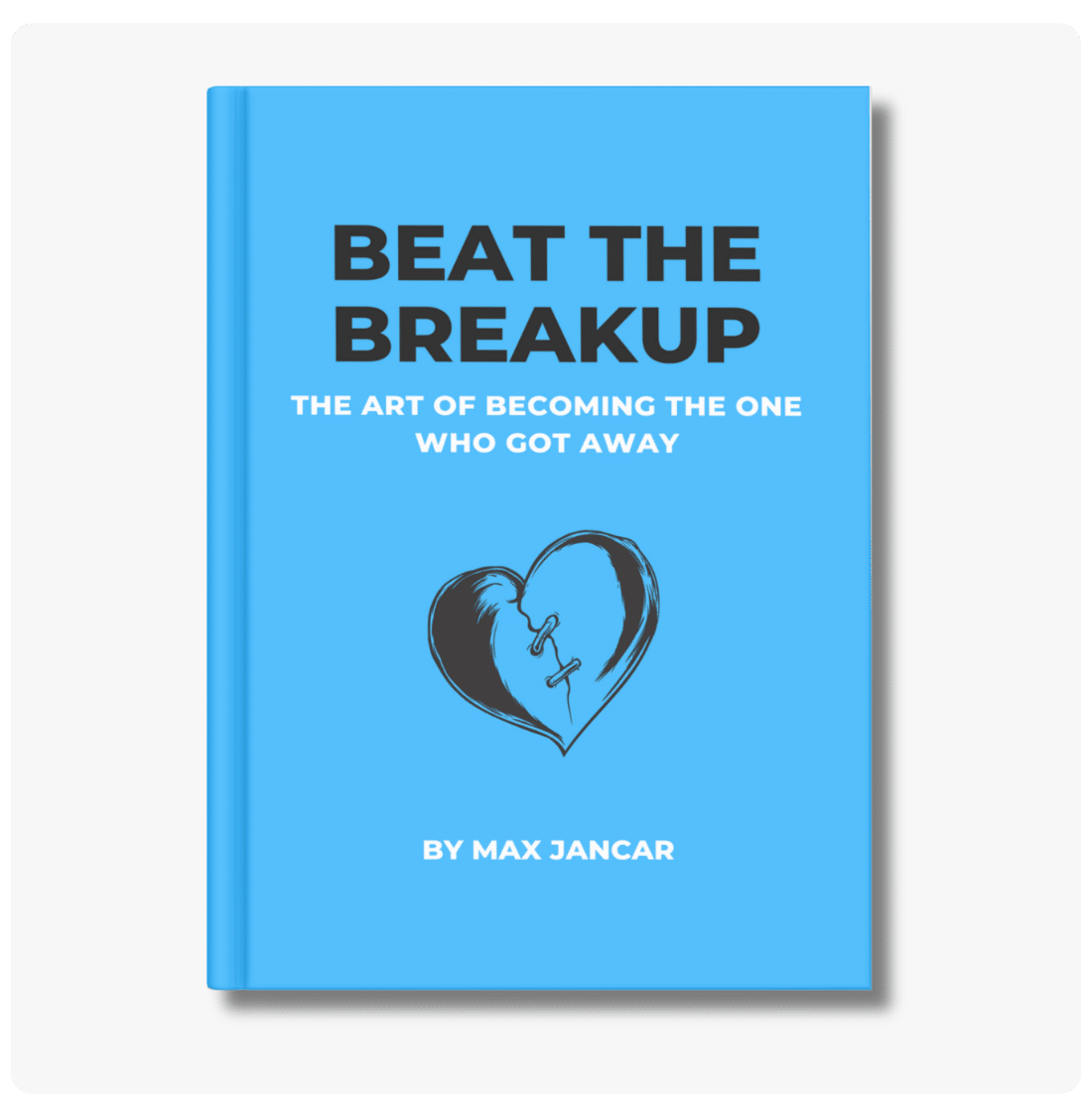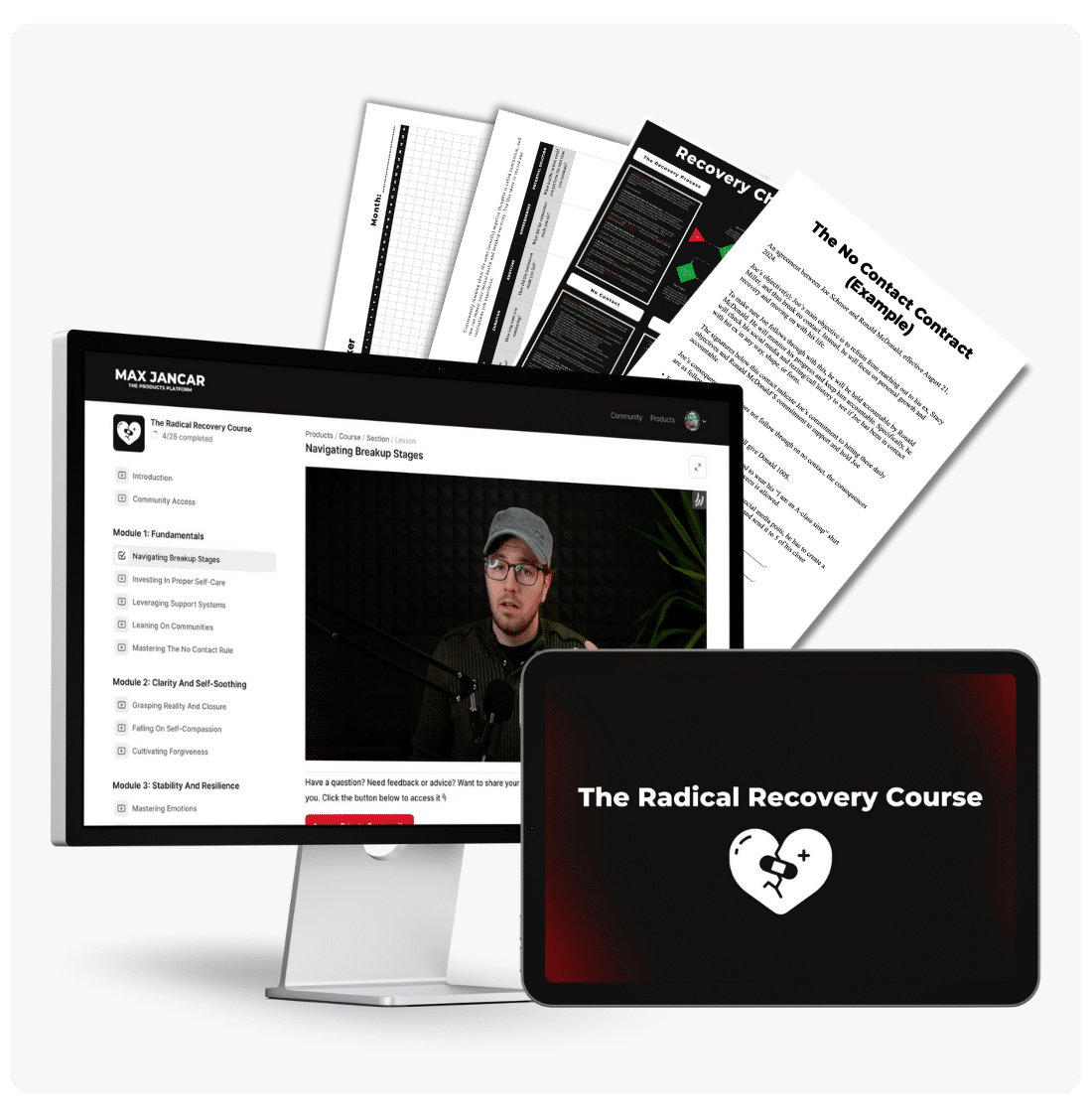Click play to listen to this article.
After a breakup, our emotional landscape often becomes a terrain of contradictions. These paradoxical feelings can leave us feeling confused and wondering if our responses are normal. But the truth is, experiencing conflicting emotions during a breakup isn’t just common — it’s a natural part of the healing process.
When relationships end, our hearts and minds often pull us in opposite directions. These internal conflicts aren’t signs of emotional instability but rather indicators of the complex process of detachment and growth.
Let’s explore nine of the most common emotional paradoxes that emerge during breakups and understand why they occur.
A guide to breakup recovery based on embracing discomfort, extracting wisdom from dark moments, and healing through evidence-based practices.
Order Your Copy1. The Freedom-Loneliness Quandry
Picture standing at the edge of an open field. The vastness before you promises unlimited possibilities, yet that same expansiveness can feel overwhelmingly empty. This perfectly captures the first major paradox of breakups: the simultaneous experience of liberation and isolation.
Many newly single individuals report feeling exhilarated by their renewed independence — the ability to make decisions without consultation, to rediscover personal preferences, to reimagine their future.
However, this same freedom often amplifies awareness of the absence left behind. The empty side of the bed, the unused coffee mug, and the silence during typically shared moments — all become stark reminders of the companionship lost.
This cheat sheet lays out 40+ solutions to overcoming a breakup so you can create a new opportunity for love — be that with your ex or someone completely different.
Get The Free Cheat Sheet2. The Closure Conundrum
Perhaps one of the most frustrating paradoxes is the relationship between closure and healing.
Many believe that understanding exactly why things ended will help them move forward. Yet the pursuit of closure often resembles trying to heal a wound by repeatedly examining it — the very act of seeking answers can reopen emotional injuries and extend your recovery process.
The truth about closure is that it rarely comes from external sources. Real closure typically emerges from within, through acceptance and personal growth, rather than from any explanation an ex might provide.
3. The Memory Maze
The human heart seems to have its own filing system when it comes to memories after a breakup. While the logical mind pushes us to move forward, our emotional memory bank continues making withdrawals from the past. So we might find ourselves simultaneously deleting photos from our phones while secretly replaying favorite moments in our minds.
This paradox serves an important psychological function: it allows us to gradually transition from attachment to independence, even though the process can feel like taking two steps forward and one step back.
4. The Independence-Intimacy Interface
An online course that teaches you how to heal and grow from a breakup so you can create a new possibility for love — with or without your ex.
Get Instant AccessBreaking free from a relationship often ignites a fierce desire for self-sufficiency. We might throw ourselves into solo projects, redecorate our space, or make bold decisions independently. Yet, in the quiet moments, the yearning for emotional connection can feel overwhelming.
This push-pull between independence and intimacy reflects our fundamental nature as humans — we need both autonomy and connection to thrive. The challenge lies in learning to balance these seemingly opposing needs.
5. The Change Challenge
Change after a breakup is inevitable, yet our relationship with it remains complicated. While part of us recognizes the opportunity for growth and transformation, another part clings to the familiar, even if that familiarity no longer serves us.
This resistance often stems from our brain’s preference for predictability, even when that predictability involves pain we know rather than potential happiness we don’t.
6. The Solitude-Distraction Divide
The theory goes that we often find ourselves torn between two competing recovery strategies post-breakup. The first pulls us toward solitude, encouraging introspection and emotional processing. The second pushes us toward distraction — busy schedules, social engagements, and new activities.
Both approaches have merit, and the art lies in finding a balance that allows for both healing solitude and healthy distraction.
7. The Blame Balance
Self-reflection after a breakup can feel like a pendulum swinging between extreme points of blame. One moment, we’re cataloging our own mistakes and shortcomings; the next, we’re listing our ex’s faults and failures.
This back-and-forth, while emotionally taxing, often leads to a more nuanced understanding of relationship dynamics and personal growth opportunities.
8. The Timeline Tangle
Nostalgia for shared memories can coexist with excitement about future possibilities, creating an emotional tug-of-war between the past and the future. We might find ourselves daydreaming about past happiness while simultaneously planning new adventures.
This paradox highlights our capacity to hold multiple emotional truths simultaneously — a skill that ultimately contributes to emotional resilience.
9. The Strength-Vulnerability Spectrum
The decision to end or accept the end of a relationship often requires tremendous strength — sometimes even a bit of selfishness.
Yet this same decision can leave us feeling incredibly vulnerable. Sometimes so vulnerable that we actively avoid falling for another person — even when that person is a good fit for us.
As long as we avoid the extremes of this paradox (i.e., excessive selfishness or protectionism of the heart), it should remind us that strength and vulnerability aren’t opposites but rather complementary aspects of emotional health.
Moving Forward With The Paradoxes
Understanding these paradoxes can provide comfort when your emotions are all over the place, making it impossible to focus or enjoy yourself. Rather than fighting them when they start rearing their ugly heads, try accepting them as natural parts of the healing process. This will likely facilitate recovery.
Also, remember that these paradoxes aren’t problems to be solved but rather experiences to be navigated. Like any journey of personal growth, the path through a breakup isn’t linear. It also isn’t pleasant. It’s okay to feel contradictory, painful emotions — they’re signs that you’re healing and growing.
And that’s exactly where you want to be: healing and growing, even when it hurts.
This cheat sheet lays out 40+ solutions to overcoming a breakup so you can create a new opportunity for love — be that with your ex or someone completely different.
Get The Free Cheat SheetRelated Reading
- 10 Tips For Making Better Post-Breakup Decisions March 9, 2023
- 5 Tenets Of A Negative Breakup Recovery February 5, 2020
- How To Grow From Your Breakup Pain (7 Science-Backed Ways) April 20, 2022
- 7 Solutions For When You Can’t Sleep After A Breakup September 20, 2021
- On Taking Responsibility For Your Breakup December 12, 2021
- The Trauma That Ruined Your Relationship (And How To Heal It) October 15, 2020



